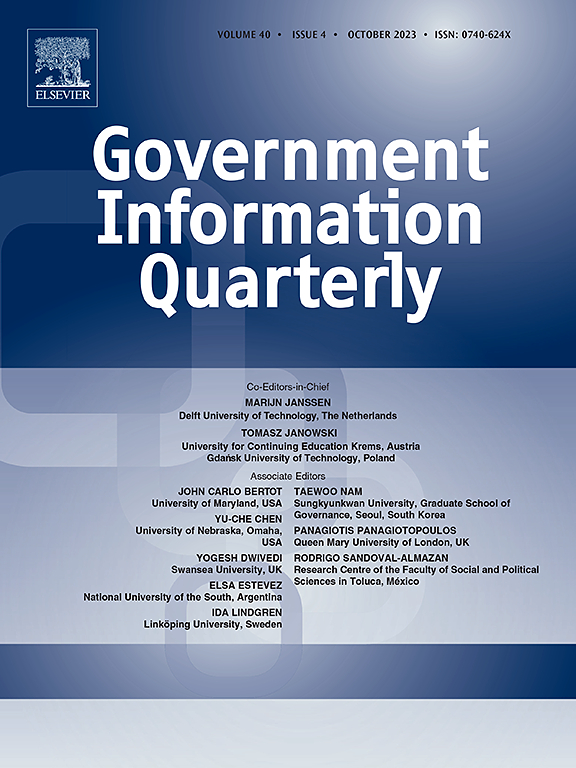数字伦理:全球趋势和不同路径
IF 10
1区 管理学
Q1 INFORMATION SCIENCE & LIBRARY SCIENCE
引用次数: 0
摘要
本研究的重点是政府机构如何在其政策中解决数字道德问题。使用结构化主题模型(STM),一种自动文本挖掘技术,我们分析了国家政府和国际政府组织(igo)在2007年至2022年间发布的71份政策文件。我们的分析确定了22个突出主题,分为三大主题:负责任技术的发展、数字权利和道德治理。本研究对这些议题和主题进行了全面的概述,包括各种政策之间的主要异同。我们揭示了这些主题随时间的演变,并讨论了政策中的关键要素。虽然调查结果表明,在指导数字技术开发和使用的核心道德原则方面存在共识,但各国和政府间组织之间在处理的具体主题和政策优先事项方面存在显著差异。这项研究通过全面概述政府政策的主流主题,突出了共同点和分歧领域,为数字伦理辩论做出了贡献。我们还讨论了这些发现的意义,并提出了未来的研究方向。本文章由计算机程序翻译,如有差异,请以英文原文为准。
Digital ethics: Global trends and divergent paths
This study focuses on how government bodies address digital ethics in their policies. Using a structural topic model (STM), an automated text mining technique, we analyze 71 policy documents published between 2007 and 2022 by national governments and international governmental organizations (IGOs). Our analysis identifies 22 prominent topics clustered into three major themes: the development of responsible technologies, digital rights, and ethical governance. This study provides a comprehensive overview of these topics and themes, including major similarities among and differences between various policies. We reveal the evolution of these themes over time and discuss key elements in policies. While the findings suggest a consensus on core ethical principles guiding the development and uses of digital technologies, significant differences emerge between countries and IGOs regarding the specific topics addressed and the policy priorities. This study contributes to the digital ethics debate by providing a comprehensive overview of prevailing themes in government policies, highlighting both common ground and areas of divergence. We also discuss the implications of these findings and propose directions for future research.
求助全文
通过发布文献求助,成功后即可免费获取论文全文。
去求助
来源期刊

Government Information Quarterly
INFORMATION SCIENCE & LIBRARY SCIENCE-
CiteScore
15.70
自引率
16.70%
发文量
106
期刊介绍:
Government Information Quarterly (GIQ) delves into the convergence of policy, information technology, government, and the public. It explores the impact of policies on government information flows, the role of technology in innovative government services, and the dynamic between citizens and governing bodies in the digital age. GIQ serves as a premier journal, disseminating high-quality research and insights that bridge the realms of policy, information technology, government, and public engagement.
 求助内容:
求助内容: 应助结果提醒方式:
应助结果提醒方式:


